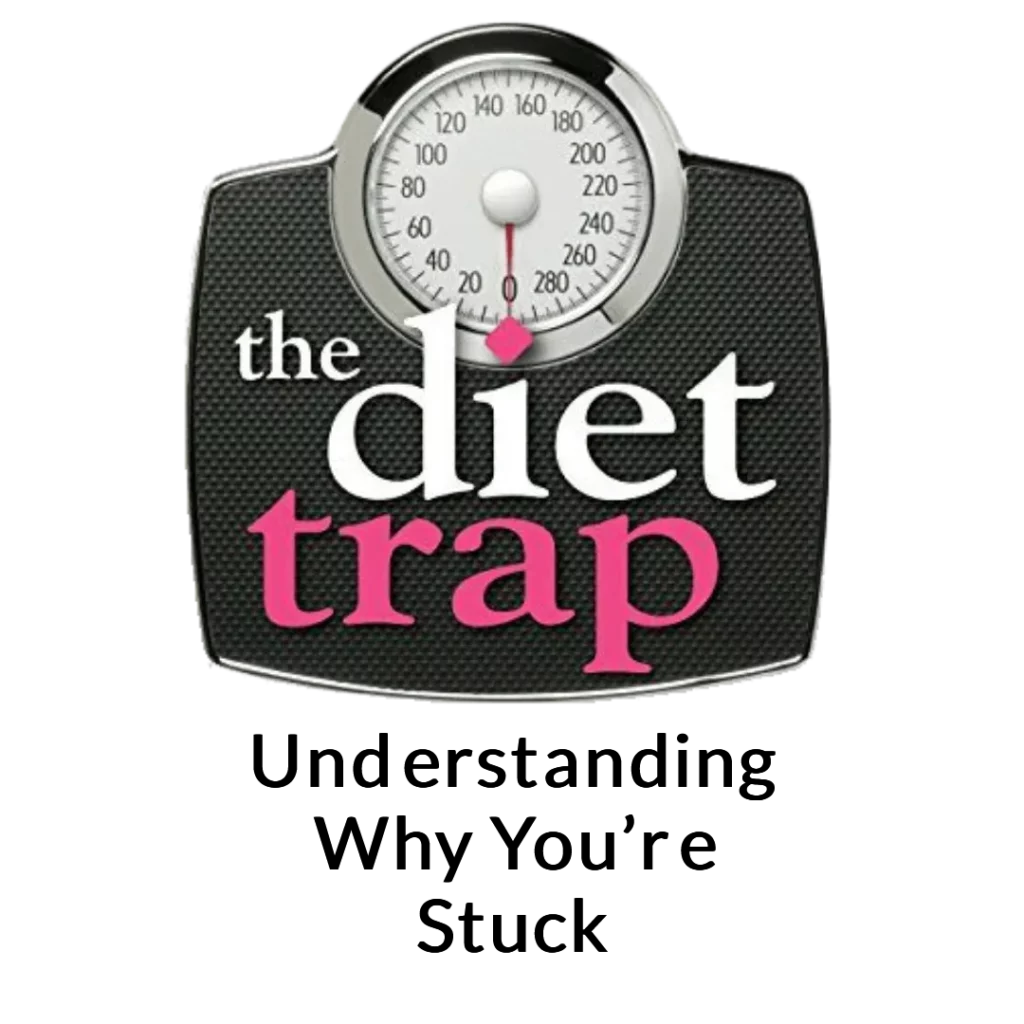When we consume more calories than we burn our bodies store the excess away as fat.
As I mentioned before our bodies are extraordinary creations and tend to store away any excess fat we don’t need in case of leaner times that might lie ahead.
We are all different. It’s frustrating to see people who eat like a horse never gain a single pound.
They probably have very active metabolisms which acts like the body’s natural furnace burning calories effortlessly the moment they are absorbed into the body.
These people are like the hummingbirds of society, no matter how much they consume their weight remains perfectly controlled.
People that are more physically active have a greater muscle mass which burns more calories and hence more fat.
Some people however are genetically predisposed to having a higher metabolism and will always be able to burn calories effortlessly.
I know, it doesn’t seem fair but just because you may not have been genetically blessed with a fast metabolism doesn’t mean you can’t have one.
Table of Contents on Things That Might Be Affecting Your Weight Loss
Weight Loss Plateaus: Understanding Why You’re Stuck
You step on the scale, only to find the numbers haven’t budged—frustration mounts and motivation dwindles, welcome to the dreaded weight loss plateau.
While it’s common knowledge that maintaining a healthy weight is vital for overall well-being, the interplay between weight and health is intricate and essential.
As we examine the myriad of factors contributing to weight gain—from dietary habits to sedentary lifestyles—the complexity of managing one’s weight becomes clear.
Yet, it’s not just lifestyle choices that lead to a fuller figure; medical conditions can stealthily tip the scales.
Obesity, the menacing specter of excessive weight gain, ushers in a host of health risks, linking arms with chronic diseases, heart conditions, and diabetes, all the while impacting mental health and emotional well-being.
Understanding these dynamics is crucial for anyone on the weight management journey.
So, how does one navigate the undulating path of weight management? This article explores the vital role of nutrients and exercise in combating weight stagnation and addressing unintentional weight fluctuations.
As we delve into the science and strategies behind weight loss plateaus, discover how to reclaim control and renew your journey toward health and happiness.
The Impact of Weight on Health
Weight management is often central to discussions about health, and for good reason.
Even a modest reduction in body weight, such as 5% to 10%, can have a significant positive impact on an individual’s health.
This level of weight loss can lead to improvements in blood pressure, cholesterol levels, and blood sugar regulation, which in turn reduces the risk of chronic conditions such as heart disease and type 2 diabetes.
For older adults, maintaining a healthy weight becomes even more crucial as it directly influences the likelihood of developing serious health issues including heart disease, high blood pressure, stroke, and diabetes.
In contrast, unintentional weight loss in this age group can be a red flag for underlying medical conditions such as cancer, gastrointestinal disorders, or neurological diseases.
Given these risks, unexpected changes in body weight should prompt a consultation with a health care professional.
Moreover, a higher body mass index (BMI) in older individuals is correlated with an elevated risk of various health problems.
This makes understanding the balance of calories consumed versus calories expended, and the subsequent effect on body weight, an essential part of healthy aging and weight management.
However, weight management is a complex issue influenced by numerous factors, including physical activity, dietary habits, sleep quality, and conditions such as hypothyroidism or other endocrine disorders that affect metabolic rate.
As we delve deeper into exploring the relationship between weight and health, we will uncover how these factors interplay, what strategies are effective for weight management, and why maintaining a healthy body weight is a key component of overall well-being.
Understanding the Relationship Between Weight and Health
The relationship between body weight and health is intricate, as an imbalanced weight can trigger various health concerns.
Elevated BMI in older adults has been directly associated with a higher risk of developing significant health issues such as heart disease, high blood pressure, stroke, and diabetes.
Conversely, unexplained weight loss may act as a warning signal of severe medical conditions warranting immediate attention from health care professionals.
One of the more profound insights in the relationship between weight and health is the link between obesity and an increased risk of different types of cancers.
This relationship may be mediated through mechanisms such as inflammation, hormone changes, and anomalies in cell growth.
Moreover, if weight loss is achieved too rapidly or unsustainably, it can result in the loss of muscle mass along with fat, raising concerns about the importance of preserving muscle health while losing excess weight.
Another aspect to consider is the complex interplay between weight and mental health.
Studies have suggested a bidirectional relationship where obesity can lead to the onset of depression, or depression can increase the likelihood of gaining excess weight.
Therefore, it is apparent that managing body weight is not just about dietary control or physical activity alone, but also about addressing mental health needs.
The Importance of Maintaining a Healthy Weight
A healthy body weight is more than just a number on the scale; it is a crucial component of overall health, especially as we age.
Elevated BMI in older adults can lead to a multitude of health problems, including heart disease, high blood pressure, stroke, and diabetes, suggesting the importance of weight management throughout the aging process.
At the same time, being underweight is not without risks, such as an increased likelihood of osteoporosis, anemia, and challenges in recovering from illnesses or infections.
This underscores the need for a balanced approach to diet and exercise that considers the unique health requirements of each individual.
When older adults experience sudden and unintentional weight loss, it is essential to seek evaluation from a health care professional, as it could indicate the presence of serious medical conditions like cancer, gastrointestinal disorders, or neurological diseases.
Maintaining a healthy weight in older age is more than just a preventive measure against diseases; it is integral to healthy aging.
It enables seniors to enjoy a higher quality of life and enhances their ability to engage in daily activities, ultimately impacting their well-being and longevity.
In supporting older adults in their weight management journey, it is vital to consider a multi-faceted approach that includes monitoring diet quality, portion sizes, physical activity level, and addressing any underlying medical or mental health conditions.
Through these concerted efforts, older individuals can maintain a healthy weight, which is pivotal in ensuring a robust and active life.
Factors Contributing to Weight Gain
Factors Contributing to Weight Gain
Gaining extra weight can be the cumulative result of various factors, ranging from lifestyle habits to underlying health conditions.
Chronic stress is a prevalent contributor to weight gain, as it prompts the body to release cortisol, a hormone that not only triggers cravings for sugary or fatty snacks but also encourages fat storage around the abdominal region.
Furthermore, our food-related behaviors often have a subtle yet substantial impact on weight management.
Habits like eating late at night, attending social gatherings that involve food, consuming meals in response to emotional highs and lows, and eating while distracted by digital devices or television can lead to excess calorie intake and weight gain.
Medical conditions like Cushing syndrome and hypothyroidism, though less common, are notable for their potential to disrupt weight loss efforts.
Normalizing the nutritional balance in one’s diet is also crucial; rather than zeroing in on specific food restrictions, a comprehensive look at overall diet quality is more impactful on both weight and health.
Additionally, sociocultural elements—how family, community, and social relationships shape dietary choices—can have a significant influence on what and how we eat.
These factors must be acknowledged and addressed to create an environment conducive to healthy weight management.
Dietary Factors That Contribute to Weight Gain
Bad dietary habits can significantly influence body weight.
Night eating and frequent snacking after dinner time are habits that can contribute to caloric excess and weight gain; the body tends to be less active at night, leading to reduced calorie burning.
Social environments often encourage us to eat more than we need, be it a family dinner or meeting friends at a restaurant.
Emotional eating, where food becomes a coping mechanism for feelings like sadness, joy, or stress, often leads to the consumption of unhealthy, calorie-laden foods.
Finally, eating while distracted—such as in front of a screen—can lead to unconscious overconsumption.
Tracking patterns in a food diary can be revealing and beneficial.
This simple tool can help identify triggers for unhealthy eating behaviors, from certain emotions to social settings, providing insight on how to manage these habits effectively.
Sedentary Lifestyle and Lack of Physical Activity
A sedentary lifestyle is a significant roadblock in the path to achieving a healthy weight.
Low levels of physical activity not only hinder weight loss efforts but are also associated with discouraging weight loss plateaus.
Our modern work environment, which often requires long hours at a desk, exacerbates this issue, and the lack of movement throughout the day can lead to a decrease in metabolic rate.
Incorporating physical activity into one’s routine, such as a brisk 30-minute walk, is a practical step to combat the effects of a sedentary life.
Even moderate exercise can kickstart the metabolism and assist in shedding extra weight.
The key is to remember that the human body thrives on movement, and any increase in activity, no matter how small, can be incredibly beneficial for health and weight loss goals.
Medical Conditions and Weight Gain
While various lifestyle choices can lead to weight gain, certain medical conditions can also play a significant role.
Cushing syndrome and hypothyroidism, for instance, can lead to increased body weight and pose challenges for individuals trying to lose weight.
The emotional impact of chronic stress, anxiety, or grief can similarly result in weight gain through the excessive release of cortisol.
Other conditions, such as polycystic ovary syndrome (PCOS), directly affect one’s ability to lose weight due to hormonal imbalances and metabolic challenges.
Further complicating matters, some medications may contribute to weight gain.
When faced with such challenges, it is important to work closely with a health care professional who can guide medication adjustments or provide additional weight management strategies.
Understanding these conditions and their impact on weight is a critical step in successful weight management.
Health Risks Associated with Obesity
Obesity remains a leading public health concern due to its strong association with a spectrum of serious health problems.
Individuals carrying excess weight face an elevated risk of developing chronic conditions such as heart disease, high blood pressure, stroke, and type 2 diabetes.
These conditions not only lead to a decline in overall health and well-being but can also result in increased healthcare costs and reduced life expectancy.
Furthermore, obesity is intricately connected to a higher incidence of certain cancers.
The link is thought to stem from the way excess body fat influences inflammation, hormone levels, and cell growth, which can contribute to the development and progression of cancer.
With obesity-related disorders on the rise, the importance of maintaining a healthy body weight is clearer than ever.
By addressing this issue head-on with a combination of diet, exercise, and, when necessary, medical intervention, individuals can greatly reduce their risk of these health complications.
Link Between Obesity and Chronic Diseases
A profound link exists between obesity and the risk of chronic diseases, such as coronary heart disease and diabetes.
In Australia, around 75% of men and 60% of women are said to have excess body fat contributing to these and other obesity-related conditions.
This surge in the prevalence of obesity is parallel with a concerning increase in illnesses like heart disease and stroke.
Shedding even a modest amount of weight—a target as achievable as 5% to 10% of body weight—has the potential to significantly reduce the risks associated with chronic diseases.
Weight management is a vital component of preventing these life-altering conditions and improving quality of life for individuals affected by obesity.
Increased Risk of Heart Disease and High Blood Pressure
As adults age, a higher BMI can set the stage for increased risks of heart disease, high blood pressure, stroke, and diabetes.
On the other end of the spectrum, being underweight is not without concern either, as it can lead to issues such as osteoporosis and anemia, often complicating recovery from other illnesses or infections.
However, when addressing obesity, the focus is on the vast array of cardiovascular risks, including raised blood pressure—the precursor to heart disease and stroke.
It’s important to note that not all weight loss is beneficial; rapid weight loss can sometimes impact metabolic rate and muscle mass, underscoring the need for a balanced approach to weight reduction to safeguard heart health.
Obesity and its Connection to Diabetes
One of the most prevalent metabolic disorders linked to obesity is diabetes, especially type 2 diabetes.
Excess body fat contributes to the body developing insulin resistance, which can hinder its ability to manage blood sugar effectively.
Through weight loss and a healthy lifestyle, individuals can witness substantial improvements in their blood sugar levels and overall diabetes management.
Moreover, achieving and maintaining a healthy weight may reduce the need for medications, including insulin injections, and protect against the development of heart disease linked to diabetes.
The staggering statistics that a majority of adults in Australia are overweight or obese echo the urgency in addressing this public health crisis to mitigate the incidence of diabetes and associated complications.
Impact on Mental Health and Well-being
The psychological dimension of obesity is as critical as the physical.
Mental health conditions such as depression and anxiety can significantly influence a person’s weight.
Depression often diminishes appetite and energy levels, altering eating patterns and contributing to weight loss.
Conversely, anxiety might drive people to engage in more physical activity and eat less, resulting in unintentional weight loss.
The varied impacts of mental health disorders reflect a complex interplay between emotional well-being and physical health, and they underscore the importance of holistic approaches to weight management that consider both mental and physical factors.
Unintended weight loss or gain can be vital signs of underlying mental health issues, representing the bidirectional relationship between mental health and obesity.
Strategies for Weight Management
Embarking on a journey toward a healthy weight involves more than sheer willpower; it requires a strategic and sustainable approach.
Gradual weight loss, approximately 1 to 2 pounds per week, is more conducive to long-term success.
Various factors come into play, such as sleep quality, age, genetics, medical conditions, medications, and environmental influences, shaping one’s approach to weight loss.
Effective weight management strategies begin with mindful eating, which encourages awareness of hunger and fullness cues.
Maintaining a food diary is a proven technique for increasing this awareness and tracking portion sizes, potentially revealing patterns that contribute to weight gain.
Increasing dietary protein can support satiety and muscle preservation, which assists in maintaining metabolic rate during weight loss efforts.
Additionally, integrating strength training into one’s routine bolsters metabolism by building lean muscle mass.
Steering clear of crash diets is essential; these often result in a cycle of weight loss and regain, with many individuals seeing a return to their original weight or even gaining extra weight within five years.
Sustainable weight loss is underpinned by subtle yet impactful changes to eating and exercise habits.
These changes, coupled with patience, dedication, and resilience, lay the groundwork for enduring success in weight management.
Importance of a Balanced Diet for Weight Management
Confronting weight loss plateaus is an inevitable part of the weight management journey.
As individuals lose weight, a natural decline in metabolic rate can occur due to the loss of lean body mass and reduced calorie requirements.
To navigate past these plateaus, integrating dietary adjustments as a long-term lifestyle choice is paramount, rather than temporary alterations destined for reversal.
A healthy diet should focus on balance; it is more beneficial to include a variety of healthful foods than to exclude entire food groups or specific items.
While reducing intake of calorie-dense foods can aid in weight loss, it’s important not to overlook the role of nutrient quality in promoting fullness.
Both fiber and protein are key to feeling satisfied after meals and help prevent overeating.
As part of the weight management process, monitoring progress, leveraging available resources, and setting attainable goals are integral.
Such practices can not only inspire continued commitment but also enhance the overall effectiveness of weight loss endeavors.
Incorporating Regular Physical Activity for Weight Loss
In the quest for weight loss, physical activity is indispensable.
Regular aerobic exercise, such as brisk walking, swimming, or cycling, increases calorie burn and can significantly bolster weight loss efforts.
Additionally, incorporating strength training regimes, like weightlifting, not only aids in burning extra calories but also contributes to lean body mass preservation, which in turn supports a healthier metabolic rate.
Adopting a diet centered around whole, nutrient-rich foods combined with physical activity is a winning formula for healthy weight loss.
Ensuring there is a balance between energy intake (food) and energy expenditure (physical activity) is a central pillar of weight management.
It’s important to adjust diet and exercise in concert, keeping in mind that individual needs will vary.
Seeking the advice of a healthcare professional is often a worthwhile step for individuals crafting a personalized weight loss plan.
Each person’s unique health profile and lifestyle necessitate tailored guidance – whether from a doctor, a registered dietitian, or another health care professional – to navigate the complexity of diet and exercise choices effectively.
Recognizing Weight Loss Plateaus and Overcoming Challenges
The experience of a weight loss plateau, where weight remains constant despite efforts, is common, especially after six months of consistent weight reduction.
Variations in muscle mass, undigested food, and body water can disguise actual progress, making it seem as if the scale is at a standstill.
As individuals lose weight, the metabolic rate can decrease along with the body’s energy needs, making further weight loss more challenging.
To surmount these plateaus, it’s helpful to reassess food intake, possibly revising portion sizes or the balance of macronutrients.
Lifestyle elements that may be impeding progress, such as sleep patterns and stress levels, should also be addressed.
Support systems, whether from friends, family, weight loss groups, or health professionals, can provide the necessary encouragement and accountability to maintain momentum in healthy weight management.
Regularly revisiting and refining weight loss strategies ensures they remain effective and avoids the discouragement that can come from unexpected plateaus.
By understanding and adapting to the body’s changing needs, individuals can continue to make strides in their weight management journey.
Understanding the Role of Nutrients in Weight Management
Navigating the complexities of weight management can be simplified by recognizing the essential role of nutrients in the process.
Nutrients, including protein, carbohydrates, and fats, each play a pivotal role in how our body maintains and adjusts its weight.
Protein is an invaluable ally in the quest for healthy weight loss.
It has the remarkable ability to induce satiety, leaving you feeling fuller for longer periods, which naturally helps to reduce overall calorie intake.
Furthermore, protein’s role in preserving lean muscle mass guards against a decline in resting energy expenditure, ensuring that your metabolic rate stays consistent, even as you shed pounds.
This action also serves as a pivotal factor in thwarting weight regain, keeping the fears of yo-yo dieting at bay.
On the other hand, ultra-processed foods, often dense in calories and lacking in essential nutrients such as fiber and protein, offer little to no benefit for weight loss.
These foods quickly lead to overconsumption of calories and a lower degree of fullness, posing a considerable barrier to effective weight management.
Instead, their minimally processed or whole food counterparts can help maintain a healthy weight with their satiating fiber content, especially those with low glycemic index values, such as whole grains and legumes.
These options offer sustained energy release, which curbs appetite and reduces the likelihood of overeating.
Mindful eating tactics, focusing on appreciating every bite, slow chewing, and attentiveness to the body’s hunger cues, can significantly contribute to calorie control and, consequently, weight loss.
Low protein intake can, however, derail these efforts, further underscoring the importance of incorporating a sufficient amount of this macronutrient for successful weight management.
Importance of Monitoring Calorie Intake to Support Weight Loss
Calorie tracking is a proven tactic in the arsenal of successful weight loss.
Using food diaries or even taking snapshots of meals can make you more aware of your eating habits and contributes to greater weight loss compared to those who do not practice this habit.
Awareness and accountability are key when it comes to how much is consumed, preventing accidental overeating.
Maintaining a healthy and sustainable calorie deficit—the foundation stone of weight loss—is critical yet challenging.
The concept is straightforward; consume fewer calories than the body burns.
This tactic compels the body to draw from its energy reserves, namely fat stores, resulting in weight loss.
However, the deficit mustn’t be too severe as it can lead to nutritional deficiencies and other health issues.
For accurate and safe weight reduction, it’s advisable to discuss calorie needs with a healthcare provider who can provide guidance tailored to your personal health parameters.
Keeping a close watch on calorie intake, with the aim of eating balanced, healthful foods, is a well-established method to support weight loss.
Incorporating Essential Nutrients in a Healthy Diet
A cornerstone of a healthy diet is the inclusion of high-fiber foods like fruits, vegetables, and whole grains.
These nutritional powerhouses not only provide your body with vital nutrients but also bring the benefit of fullness without a hefty caloric price tag.
Nutrient-dense foods are high in essential vitamins and minerals while being low in unhealthy fats, offering a more efficient way to satiate hunger without contributing to weight gain.
In addition to main meals, nutrient-dense snacks can also offer an extra boost of essential nutrients.
Options like nuts, cheese, and dried fruits can deliver significant dietary value focusing on vitamins, minerals, and healthy fats.
For those aiming for more flavor in their meal plans, adding fruits like berries to plain Greek yogurt can amplify the taste without undue sugar, aiding in the adherence to a healthier dietary pattern.
When planning meals, it’s wise to embrace diversity in your food choices and include a wide array of less-processed options daily.
A balanced and nutritious diet doesn’t necessitate the elimination of any food group but rather the thoughtful selection of a variety of foods that contribute to overall well-being.
For individuals who might need to gain weight, foods rich in healthy fats, such as avocados and peanut butter, become particularly beneficial.
The Role of Protein in Weight Management and Muscle Preservation
The role of protein in weight management is multifaceted and compelling.
Beyond its recognized ability to enhance feelings of fullness, protein also has a positive impact on the regulation of appetite-controlling hormones such as ghrelin.
High-protein diets are not only linked with more effective weight loss but also with a decrease in the risk of developing heart disease, adding to the expansive list of benefits of this macronutrient.
Protein’s preservation of resting energy expenditure is essential to keep the body burning calories efficiently during periods of weight loss.
This, in turn, aids in preventing weight regain, an all-too-common hindrance for many on their weight management path.
Notably, falling short on protein intake can stall progress, bringing to attention the importance of adequate protein within a balanced diet for effective and sustainable weight management.
The Importance of Regular Exercise for Weight Loss
Regular exercise is a foundational component of any successful weight loss program.
To shed extra weight and maintain a healthy body weight, incorporating both aerobic exercise and resistance training, such as weightlifting, into your routine is highly effective.
Rather than relying on exercise alone, which can yield minimal results, combining physical activity with a nutritionally balanced diet is the optimal strategy for achieving significant weight loss.
It’s important to understand that weight loss isn’t just about burning calories; it’s about creating a sustainable lifestyle that promotes overall health and well-being.
Regular exercise ensures that as you aim for weight reduction, you’re also enhancing your body’s functionality.
Physical activity levels are intrinsically linked to metabolic rate, blood pressure stability, and reduced risk of heart disease, among other health benefits.
Consulting a health care professional or a registered dietitian is advisable when you’re starting a weight loss journey.
They can offer personalized guidance to align with your physical activity level, health conditions, and individual weight loss goals.
By adhering to the advice of health professionals and remaining committed to regular exercise, you’re laying down the building blocks for enduring weight management.
Different Types of Exercise and their Effects on Weight Loss
A spectrum of exercises exists, each carrying its own benefits for weight loss efforts.
Aerobic exercise, which includes activities such as jogging, cycling, and swimming, is renowned for its calorie-burning capacity and is a pivotal element in any weight loss plan.
On the other hand, resistance training—typified by weightlifting—bolsters muscle mass and elevates metabolic rate, ensuring the body continues to burn calories efficiently even at rest.
While exercise is indispensable for shedding extra weight, it is less effective in isolation without a complementary healthy diet.
For instance, the consumption of high-calorie sugary beverages can counteract the benefits of physical activity, making it harder to achieve a healthy weight.
Moreover, sudden unexplained weight loss can occasionally be indicative of underlying medical conditions, such as certain cancers, which can lead to a decrease in body weight through mechanisms like increased metabolism and diminished appetite.
The Role of Aerobic Exercise in Burning Calories
Aerobic exercise is central to calorie burning and, by extension, weight loss.
The American Heart Association recommends at least 30 minutes of moderate aerobic exercise daily to achieve general health benefits, including better blood sugar levels and blood pressure.
Moderate aerobic activities, such as brisk walking, casual biking, or swimming, are easy to incorporate into daily activities and sufficient for a significant calorie burn.
For those aspiring to increase their calorie expenditure and meet more ambitious fitness goals, it may be necessary to engage in aerobic exercise beyond the basic 30-minute guideline.
Vigorous activities like running and aerobic dancing are particularly potent for calorie burning and can speed up progress towards achieving a healthy weight.
Strength Training for Building Muscle and Increasing Metabolic Rate
While aerobic exercise plays a significant role in weight loss, strength training is equally important for building muscle and increasing metabolic rate.
A regimen balancing both cardio and resistance training catalyzes a more effective weight loss process.
Muscles require more energy to maintain than fat, meaning that building muscle mass through strength training can enhance metabolism.
Incorporating strength training exercises such as weightlifting into workouts not only aids in reducing body weight but also in sculpting a more toned physique.
By mixing strength training with aerobic activities, the body’s metabolic rate is optimized, supporting long-term weight management and the prevention of weight loss plateaus.
Implementing regular physical activity of varying intensities lays down a robust foundation for not just reaching a healthy weight but also maintaining it.
As part of a comprehensive Weight Management plan, exercise bolsters mental health, enhances metabolic rate, and paves the way for sustained well-being.
Addressing Unintentional Weight Loss and Weight Gain
Unintentional changes in body weight can be perplexing and sometimes concerning.
A significant decrease in weight over 6-12 months without making changes to your diet or increasing your physical activity may indicate the presence of a medical condition.
Conversely, some individuals may experience weight gain due to health conditions that affect the body’s metabolism and fat storage, such as chronic stress, hypothyroidism, or polycystic ovary syndrome (PCOS).
Highly processed foods can also contribute to unintended weight gain, exemplifying the importance of a healthy, balanced diet.
Understanding that gradual and steady weight loss is more favorable than rapid weight loss is important for long-term weight management and health.
This emphasizes the significance of adopting healthy lifestyle changes rather than seeking quick fixes.
When dealing with sudden and unintentional weight changes, it’s vital to consult a health care professional to rule out any underlying health issues.
Recognizing and Addressing Unexplained Weight Loss
Unexplained weight loss, characterized by a significant drop in body weight without intentional dieting or increased exercise, should be taken seriously.
While unintentional weight loss can happen at any age, it is particularly crucial to pay attention to this symptom in older adults, as it may signal an underlying medical condition like cancer or a gastrointestinal disorder.
It is essential to monitor your body weight and be aware of any changes that occur without alterations to your diet or activity levels.
Rapid weight loss warrants immediate medical attention, as it could indicate a health condition that requires diagnosis and treatment.
Recognizing the signs early can lead to timely intervention and potentially prevent more serious outcomes.
Strategies for Preventing Weight Gain and Postpartum Weight Retention
Maintaining a healthy weight or preventing postpartum weight retention involves several key strategies:
- Caloric Needs: Understand that calorie requirements vary by gender, activity level, and age.
- Women generally have lower caloric needs, particularly as they age.
- Movement: Incorporate more physical activity into your daily routine, such as a brisk 30-minute walk, to combat sedentary lifestyles.
- Eating Patterns: Keep a regular eating schedule and opt for whole, less-processed foods to avoid excessive calorie intake.
- Portion Control: Be mindful of portion sizes to ensure you’re not consuming more calories than necessary.
- Nutritional Balance: Limit saturated fats and added sugars.
- Balance your energy intake with your energy output for effective weight management.
- Professional Advice: Consult with a dietitian to create a personalized healthy eating plan that caters to your health needs and lifestyle, providing support for weight management and postpartum weight challenges.
By adhering to these strategies and seeking professional guidance as needed, individuals can take proactive steps to manage their weight effectively and align their lifestyle with their weight management goals.
The Role of Emotional Health in Weight Management
Emotional wellness is a pivotal factor when it comes to managing body weight.
Our emotional health influences our eating habits, which can either support or undermine our weight management efforts.
When individuals experience negative emotions such as stress, sadness, or boredom, they might turn to food as a coping mechanism—this behavior is often referred to as emotional eating.
Not only does this make it challenging to maintain a healthy weight, but it can also lead to unintended weight gain.
Mental health conditions like depression can also significantly impact an individual’s weight, sometimes causing a decrease in appetite and subsequent weight loss.
Conversely, for some, depression may trigger an increase in appetite, leading to weight gain.
Recognizing the complex interplay between mental health and eating behaviors is crucial for effective weight management.
Behavior patterns such as emotional eating, night eating, and distracted eating, wherein an individual might consume food while occupied with other activities like watching TV, can sabotage efforts to maintain a healthy weight.
The journey to reaching and upholding a healthy weight includes not just focusing on a balanced diet and regular physical activity, but also nurturing one’s emotional well-being.
One way to address these issues is through mindfulness, which involves being fully present and engaged in the moment when eating and can thus help in making intentional food choices.
By understanding and addressing the emotional triggers that lead to overeating, individuals can develop healthier habits that support their weight management goals.
Emotional Eating and its Impact on Weight Loss Efforts
Emotional eating is a common barrier that impedes many individuals in their weight loss efforts.
Eating in response to feelings, rather than hunger, can lead to the consumption of excess calories and make it difficult to lose weight.
For example, encountering a stressful day at work or coping with feelings of loneliness might prompt someone to seek comfort in food, often leading to the choice of high-calorie, less-nutritious options.
Individuals who struggle with depression may find themselves eating in an attempt to ease their emotional distress, which can inadvertently result in weight gain.
The temporary comfort provided by food can become a habitual response to emotional lows, sustaining an unhealthy cycle.
Mitigating the impact of emotional eating involves recognizing these patterns and finding alternative ways to cope with negative emotions.
Here are some ways to help combat emotional eating:
- Identify emotional triggers and journal your food intake to understand the correlation between mood and eating habits.
- Seek healthier avenues for managing emotions, such as engaging in physical activity, which can boost mood and reduce stress.
- Establish a support system, possibly including counseling with a mental health professional, to work through emotions without relying on food.
- Practice mindful eating by paying full attention to the eating experience, savoring flavors, and responding to satiety cues.
Recognizing emotional eating and its impact is an essential step toward successful weight loss.
By tackling the emotional challenges associated with eating, individuals can take control of their eating behaviors and make progress toward their weight management objectives.
By addressing the emotional aspects of eating and consistently practicing these strategies, individuals can not only support their weight loss efforts but also improve their overall relationship with food—leading to a healthier and more balanced lifestyle.








